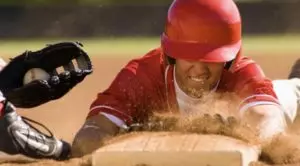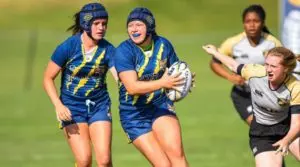Today's game of baseball has quickly changed to increase the speed of the game. Along with the implementation of replay, reviewing baseball plays is new and improved. The MLB started the trend of wanting to make the game quicker and make it more enjoyable for the fans. In 2019, the NCAA is looking to do the same. In the year of 2019, the NCAA incorporated new rules to prohibit downtime between innings as well as taking dead time entirely out of the game. The NCAA is making strides to make a faster baseball game a reality.
A new rule Appendix F states, “a 120 second time limit in between innings will be enforced and the time limit will begin shortly after the last out is made.” What this means is that the warm-up time between innings will be significantly shortened to ensure that the game moves along. However, this means that the pitchers will now have less time to warm up. This is unlike the baseball before where pitchers had more time to warm up and were not held to a clock.
Another implementation of new and improved baseball rules is the pitch clock. The NCAA has adopted a 20-second rule that gives pitchers twenty seconds in between pitches. This rule has been in place and is starting to be more heavily enforced. Umpires are now urged to keep track of the clock and strictly enforce the rule. NCAA schools are being told that although a visible field clock is not mandatory, it is strongly recommended. This insinuates that a visible pitch clock and a strict 20 second time limit between pitches is coming soon for the NCAA.
Another rule that the NCAA approved was the opportunity for the defensive head coach to signal to the umpire when they intend on intentionally walk a batter. Then the pitcher would not have to throw four balls, but instead, the batter would take first base. The NCAA's rationale behind this is “to increase the pace of play while also aligning themselves with professional baseball.” This rule does not have many implications on players and is a good step for the NCAA; however, it is still a change to America's sport.
How will these new rule changes affect the players in NCAA baseball and the different levels of the sport? We have to ask how will the rule trickle down to DII and DIII teams along with athletes who are playing JUCO. Will the pitch clock be as strict at these levels? Will smaller schools have to go through the process of updating their fields with visible clocks to accommodate the rules? To get answers to all these questions, we sat down with two JUCO baseball players to talk about what they think about the rule change and how the game of baseball is speeding up.
The two athletes being interviewed are Derek Lee and Dan Parslow. Both recently played for Fulton Montgomery Community College this past year. Dan is a shortstop and also a pitcher. Dan is continuing his baseball next year. He will be playing for a Division Two school in Albany, New York at Saint Rose College. Derek is a first baseman and also played right field. Derek will not be continuing his college career but will be attending Binghamton University and is looking to play for the club team. Both of them were great players at FMCC and have excellent baseball IQ.
Both Dan and Derek had great seasons this past year. Derek had a batting average of .360 and batted fourth in the lineup. Some highlights in Derek's season included a few game-winning hits at the end of the season, one coming in extra innings that would lead FMCC to a win. Dan also had a great season both in the field and on the mound. Dan had a .300 batting average and was a force in the infield with several big plays that saved games. Dan also was 3-1 when pitching on the mound and often went deep into games for his team. Both of them are great players and had outstanding seasons. We asked them how they felt about the new rule in an interview.
2aDays: How do you both feel about the speeding up of baseball and how it will affect the game?
Derek: I don't think a pitch clock is crucial because it might ruin the integrity of the game, but I could see why it is used.
Dan: Personally, as a pitcher, I work quickly, so the idea of limiting time and warm up pitches does not affect me. I go late into games, and I don't mind having limited pitches.
2aDays: How do you feel about how the rules were enforced this year in JUCO? Is it good that the NCAA has different levels playing by different rules?
Derek: I feel like the implementation in JUCO didn't change and wouldn't have affected it because the JUCO level is already fast as it is. But I feel that if the rules are at the DI level, they should be enforced at every level because of the transfer students who are going to the next level.
2aDays: Dan, you are going on next year to play at St. Rose at the DII level, how do you feel about the rules being more enforced at the higher level and your transition into that type of play?
Dan: The thing about DIII JUCO you only play seven-inning games so I don't feel that the pitch clock would do much. However, at St. Rose, we will be playing nine-inning doubleheaders, and the rules are going to be more enforced. So I think it is essential to make sure the rules trickle down to the lower levels because there are players that will be going onto the next level. If there are going to be rules at one level, they should enforce it at all levels.
LRT: A lot of people don't understand the level of play that the JUCO level offers and that it is a legitimate option for players. So, how did both of you feel about your experience and how it benefited you and maybe should be something that athletes should take a look at?
Derek: I think personally out of high school, and you don't have an offer they believe that their career is over. JUCO is like a rejuvenation of your career because you can prove yourself there instead of giving up a sport you love to play. I went to JUCO and played with a great group of guys, and we had great team chemistry. All of this led to a great season and convinced me that the JUCO route is an excellent opportunity for athletes and is something they should seriously think about.
Dan: going to a JUCO is the most dynamic league because there are so many great players that you get the opportunity to compete against. You can play a team in DIII JUCO that has pitchers sitting 90-92 mph off the mound. You are getting to play against great players and competing against kids who will get drafted or who sat out of a big university to get drafted. Overall it was a great experience because we had a great team and there was a high level of competition which made it all the more enjoyable.
Both Dan and Derek have a great point. With these new rules, it is important to make sure that they stick and that all players can play with these standards. The rules need to be enforced at all levels. Sure, it may take some time for these rules to make it to all levels, but it is vital for the game to reach the next level. The future of baseball depends on it. For people like Dan for other great players who are looking to make it to the next level, whether that be from JUCO to DI or even high school players looking to make it to college. Even DI players are looking to go pro. The game needs stability through all levels. I believe in the next few years, and the NCAA will take the steps necessary to do so. Baseball is looking up, and when the current rules and new rules to come are enforced at all levels, the game will be better for it. Baseball is on its way to becoming a more exciting game, and the NCAA is taking the right steps to ensure that it does.
Overall the game of baseball is changing rapidly with new rules being established every year to make the games quicker and more entertaining. Although these new rules are changing the great game that baseball is they are crucial to the game's longevity. We will have to continue to support and watch the game to keep improving the game while also holding to the tradition of America's favorite pastime. If done right, with rules being enforced at all levels of the game and kids learning how to play within today's standards, the future of baseball is bright with a newer and exciting game on the horizon.
References: ncaa.com
* Originally published on June 13, 2019, by Brandon Mraz







